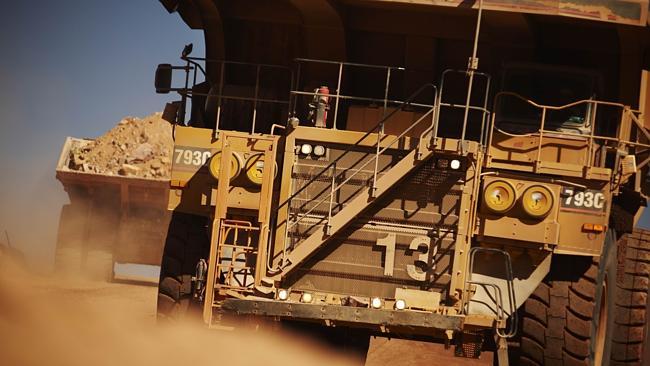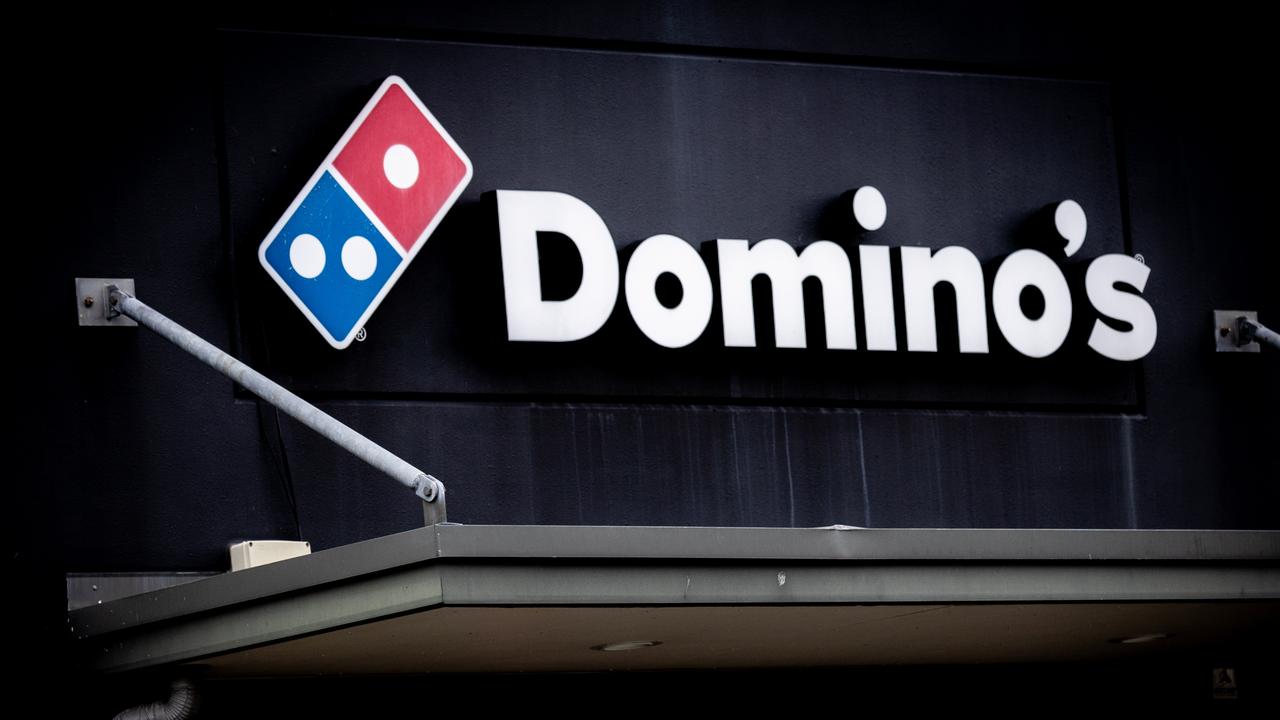BHP Billiton’s dividend has beaten the big four banks
THE upside of the mining giant’s share price fall has been a high dividend boosted by a falling Aussie dollar.

Companies
Don't miss out on the headlines from Companies. Followed categories will be added to My News.
BHP Billiton has been beating the big banks on dividend payouts to investors.
The world’s biggest mining company — traditionally seen as a high-growth, low-dividend stock — is delivering annual dividend income of about 5.5 per cent, almost twice as much as bank deposits and around the same level as bank shares.
While BHP’s high dividend yield is largely a product of its 27 per cent share price slump in the past year, most stockbrokers and analysts have a favourable long-term view of the company despite sinking commodity prices.
Macquarie Private Wealth has an “outperform” rating on BHP. Macquarie division director Paul Kirchner said the company was increasing production to replace lost profits caused by falling prices for iron ore, copper, gas and coal.
“They still have earnings coming through the door and their debt is under control, so they can maintain their distribution,” he said.
BHP has a progressive dividend policy with a stated aim of increasing or maintaining its dividend, in US dollar terms, each year.
This policy is likely to deliver its shareholders another boost when it reports its annual profit later this month, because the Aussie dollar has fallen further against the US dollar recently.
Catapult Wealth director Tony Catt the falling Australian currency — down more than 30 per cent in two years — had a “significant impact” and could increase the next BHP dividend by another 5 per cent.
Mr Catt said BHP remained a quality company and was one of the world’s lowest-cost producers of the commodities it sold. “It’s still very, very profitable,” he said.
“I hold an extreme amount of confidence that they can maintain their dividend at a reasonable level.”
While BHP’s dividend yield of 5.5 per cent matches the big banks, its dividend growth over the past decade has easily outpaced them. The latest half-year dividend of 80.8c was 370 per cent higher than 2005’s half-year dividend of 17.2c. The best performing bank has been the Commonwealth Bank, up 134 per cent in the same period.
Shaw and Partners senior investment adviser Jed Richards said BHP’s profits would always be more volatile than the banks because the company was not in charge of the prices it received for its products.
“Right now it’s more of an income stock than a growth stock,” said Mr Richards, whose firm has a “buy” rating on BHP shares.
“I wouldn’t expect much growth in that dividend over the next few years, but the current dividend will be sustainable for some time.”
Mr Richards said BHP and fellow mining giant Rio Tinto, which reported a better-than-expected profit result this week, were “well-managed companies still selling everything they can produce”.
“The commodities market will be very reliant on China in the next few years. My view is that China is fine.”
Macquarie’s Mr Kirchner said shareholders should not expect much growth in BHP’s share price or dividend over the next few years while commodity prices remained weak.
“The stock is going to be thrown around by the iron ore price,” he said.
(The author owns BHP shares)
DIVIDEND YIELDS
NAB 5.9%
ANZ 5.6%
BHP Billiton 5.5%
Westpac 5.5%
CBA 4.9%
(Figures based on companies’ latest half-year dividends. Source: Iress)
Originally published as BHP Billiton’s dividend has beaten the big four banks


